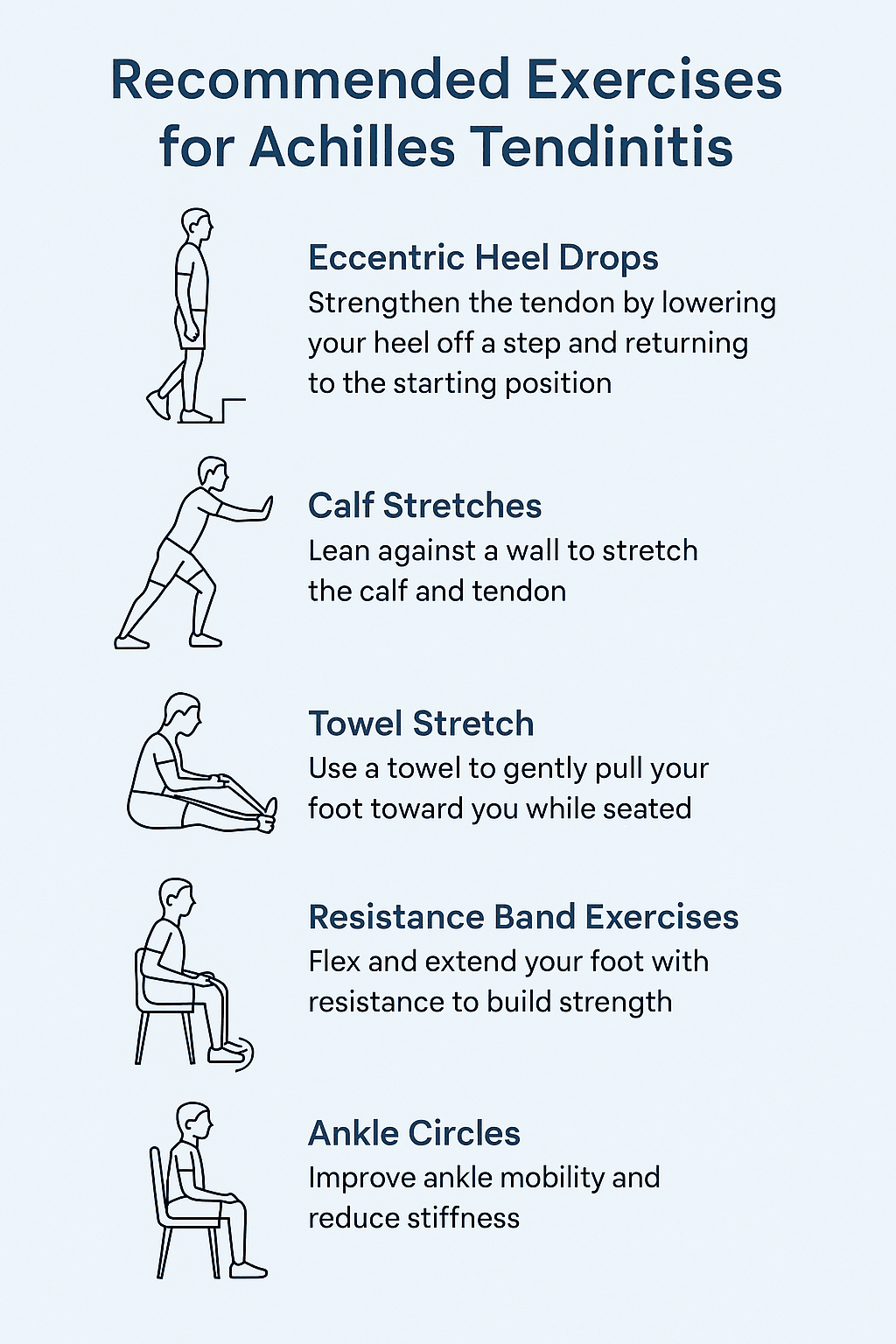

Medically Reviewed by Dr. Chirag Arora
Written by Swasthya Saarthi Editorial Team, last updated on 10 April 2025

Early signs of Achilles tendinitis often go unnoticed, but identifying them in time can help prevent long-term complications. Achilles tendinitis is a common overuse injury that affects the Achilles tendon the thick band of tissue connecting your calf muscles to your heel bone. This condition is particularly common among athletes, especially runners, but it can also impact individuals who engage in repetitive physical activities or wear improper footwear.
If left untreated, Achilles tendinitis can worsen and even lead to tendon rupture. That’s why early detection and proper care are so important. In this blog, we’ll explore the early symptoms of Achilles tendinitis, its root causes, effective treatment options, prevention tips, and how Swasthya Saarthi offers expert Achilles tendinitis treatment in Delhi/Gurgaon for long-term relief and recovery.
Best Plantar Fasciitis Exercises to Strengthen and Heal Your Feet
Shin Splints Treatment & Exercises: The Best Shin Exercises for Shin Splints
Achilles tendinitis usually results from repetitive strain on the tendon, leading to inflammation and irritation. Some common causes include:
Biomechanical Issues: Flat feet or high arches can alter pressure distribution on the tendon.
Recognizing the early signs of Achilles tendinitis is essential for timely treatment. Symptoms include:
Ignoring these early signs of Achilles tendinitis can lead to chronic pain or a tendon rupture.
Seek help if you experience:
Delaying treatment can lead to long-term complications and prolonged recovery.
If you suspect Achilles tendinitis:

Exercise plays a vital role in healing and preventing recurrence. Focus on:
Always consult a physical therapist for a personalized routine.
While occasional discomfort is common, certain symptoms are red flags:
Early recognition of Achilles tendinitis symptoms helps avoid severe complications.
Treatments range from conservative to advanced:
Preventive strategies include:
Cross-Training: Mix in low-impact exercises to reduce overuse.

At Swasthya Saarthi, we specialize in early detection and holistic management of Achilles tendinitis, as well as a wide range of Sports injuries. If you're looking for expert Achilles Tendinitis treatment in Delhi/Gurgaon, our dedicated team offers advanced, personalized care close to home.
Our multidisciplinary team including orthopedic experts, physiotherapists, and sports medicine specialists provides:
We focus on more than just symptom relief we identify and treat the underlying causes to support full, lasting recovery. Whether you're an athlete or dealing with chronic pain, Swasthya Saarthi offers expert Achilles Tendinitis treatment in Delhi/Gurgaon to help you heal better and move stronger.
Early symptoms like heel pain, swelling, or stiffness should never be overlooked. Timely recognition and intervention are key to faster recovery and preventing long-term damage. With expert diagnosis, personalized care, and proven rehabilitation strategies, Swasthya Saarthi ensures you return to your active lifestyle stronger than before. For trusted and comprehensive Achilles Tendinitis treatment in Delhi/Gurgaon, count on our team to guide your healing journey every step of the way.
A1: Most cases improve within 4 to 6 weeks with rest, therapy, and proper care. Chronic cases may take longer.
A2: Avoid high-impact movements. Low-impact activities like swimming and cycling are safer alternatives during recovery.
A3: Rarely. Most cases respond well to conservative treatments unless there’s a rupture or chronic damage.
A4: Warm up before workouts, stretch regularly, strengthen calf muscles, and wear proper shoes.
A5: We offer personalized care including therapy, expert consultations, and long-term prevention strategies tailored to your lifestyle.